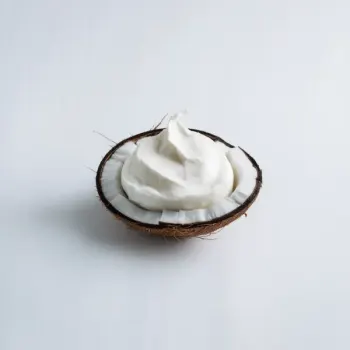


Canned
Coconut cream available in cans is often the most widely available form. It's convenient and has a long shelf life, making it a staple in many kitchens.
Carton
Some brands offer coconut cream in carton packaging. This form is usually UHT treated for shelf stability and may have a slightly different taste and texture compared to canned versions.
Powdered
Dehydrated coconut cream powder that can be reconstituted with water. It's lightweight and convenient for storage or travel, but may lack some of the richness of liquid forms.




canned coconut cream: Thai Kitchen, Native Forest
carton coconut cream: So Delicious Dairy Free
powdered coconut cream: Maggi Coconut Milk Powder

Whipping: Chilled coconut cream can be whipped to a fluffy texture, similar to dairy whipped cream. Use a cold bowl and beaters, and add sweeteners or flavorings as desired.
Simmering: Coconut cream is often gently simmered in curries and soups to add richness and flavor. Keep the heat low to prevent curdling and stir occasionally.
Thickening: Coconut cream is an excellent thickener for sauces and desserts. It can be added towards the end of cooking to achieve the desired consistency without altering the dish's flavor profile too much.



